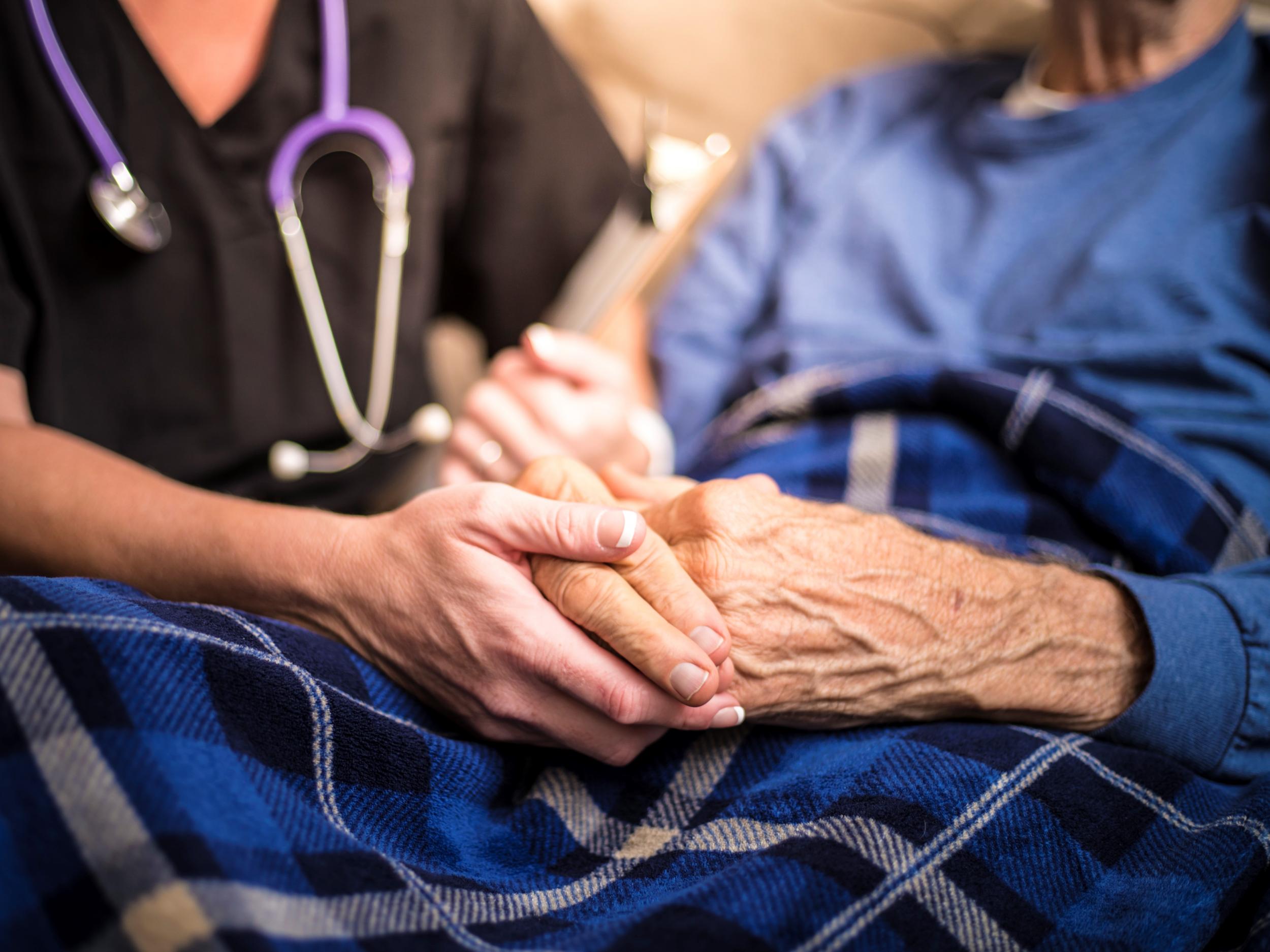Tens of thousands have died at home without adequate care during pandemic, charity warns
Exclusive ‘Drastic’ increase in people dying at home means health and care providers have struggled to respond, warns leading charity

Tens of thousands of people are likely to have died in their houses without adequate care during the pandemic, The Independent has learned.
Almost 67,000 people are thought to have passed away at home in the past two years without access to treatment such as pain medication, or with care in their final days having to be coordinated by family members, according to analysis by Hospice UK.
The charity has warned this represents a “drastic” increase in the number of people dying at home, with health and social care providers finding it difficult to respond.
Although the charity said the actual figure for those dying without proper care could be even higher than this, there is no official information on the level of unmet need in end-of-life care.
Meanwhile, in new data published on Tuesday, the UK is set to record that 100,000 deaths have taken place at home since the pandemic began.
The Office for National Statistics (ONS) is due to reveal the figure for the latter half of 2021. The most recent data from the ONS showed a total of 97,165 people had died at private residences since the beginning of the first lockdown. Based on Hospice UK’s estimates for the first three weeks of January, the charity has projected that this figure will now reach 100,414.
Speaking to The Independent, head of policy at Hospice UK, Dominic Carter, warned health and social care providers have found it difficult to respond as quickly to the “drastic” increase in people dying at home.
Without a care package in place, people at home, he said, “are likely to miss out on good quality care to the extent they need” which means people may “miss out on the chance to be able to shape those final days and weeks of their life. Does this instead turn into a crisis and into families having to take on responsibility for the care, more so than is necessary?”
He explained there is little known about the actual conditions suffered, or what care has been given to those individuals who’ve died at home without full care packages, and called for deaths at home to be scrutinised by the Covid-19 public inquiry.
He added: “Many hospices have told us that they’ve been seeing people referred to them later because people have been identified as being at their end-of-life [stage] later, and therefore quite often, much more unwell once they come into hospice or when the GP sees them.
“Therefore the ability of services, even when they're specialists, [to optimise] what they can do with the time they have remaining to make sure that person is as comfortable as possible, may well be much more limited.
“There will no doubt be people who are missing out on specialist care completely, and perhaps being supported by a generalist workforce, who are doing their absolute best to deliver quality care, but end-of-life support can be complex.
“I think we’re at that stage now where the healthcare system needs that support to better understand what’s been going on over the last two years in that home environment. Because very little has been spoken about.”
Karin Smyth MP, Shadow Health and Social Care Minister, said on Monday: “Reports that 67,000 people died at home without adequate care during the pandemic are a mark of shame on this Government.
“The scale on which this as allowed to happen, and the sheer number of lives lost, is hard to fathom. For too long, people receiving care at home have been second-class citizens within our healthcare system.
“The inquiry into the Government’s handling of Covid-19 must have at its heart a focus on this systemic failing. Families across the country, still suffering the burden of grief, deserve answers.
“But it’s also important that Government properly respects those people receiving end of life care at home, providing them with the support they need from both health and care services.
“Labour’s vision for social care and health will ensure people receive the respect and security they deserve, regardless of where they are receiving their care.”
The news comes after The Independent warned people have been left dying in pain as pressures on NHS services have led to late referrals for end-of-life care.
According to the most recent ONS analysis, the number of deaths in private homes was almost 30 per cent higher in 2020 compared to the five-year average. The leading causes of death were dementia and Alzheimer’s disease, according to the report.
A spokesperson for the Department of Health and Social Care said: “Every death from this virus is a tragedy and our sympathies are with everyone who has lost loved ones.
“Palliative and end of life care services play a hugely important role in providing care and support for thousands at the most difficult times of their lives.
“We are incredibly grateful to all of our NHS staff, including district and community nurses and volunteers, who have worked tirelessly throughout the pandemic to deliver end of life care in challenging circumstances.
“We have always said there are lessons to be learnt from the pandemic, which is why we have committed to a full public inquiry in Spring.”
Join our commenting forum
Join thought-provoking conversations, follow other Independent readers and see their replies
Comments
Bookmark popover
Removed from bookmarks